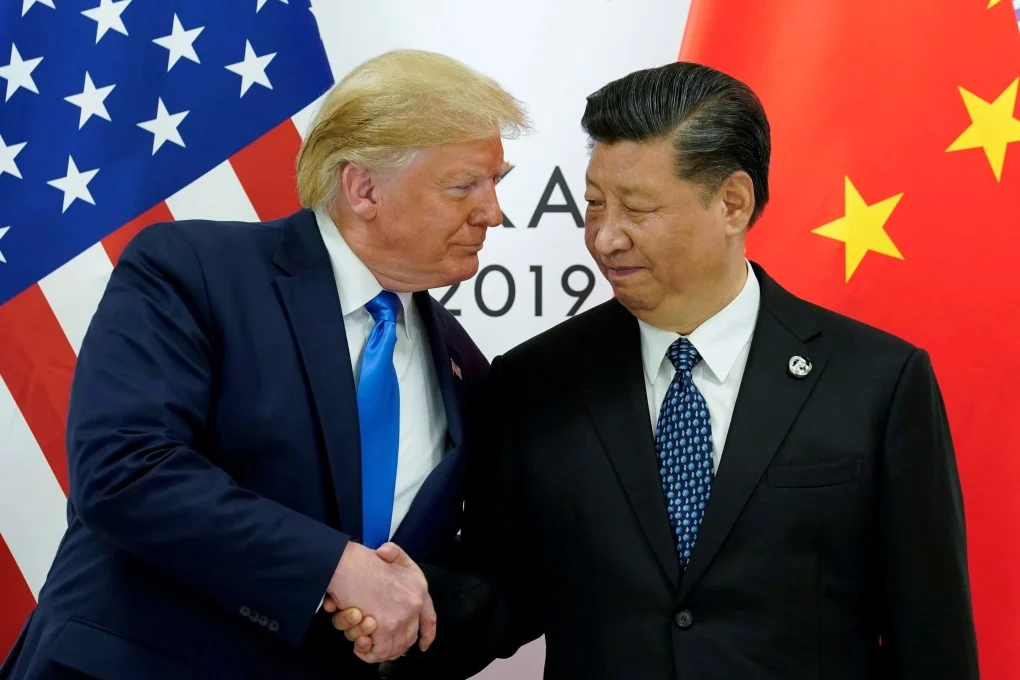November 7, 2024
In a statement following President-elect Donald Trump’s victory, Chinese President Xi Jinping congratulated him while warning of the potential repercussions of increased U.S.-China tensions. Xi emphasized that “both countries stand to gain from cooperation and lose from confrontation,” underscoring the importance of a stable and mutually beneficial relationship between the world’s two largest economies. However, with Trump’s renewed promises of blanket tariffs and other trade restrictions, Beijing is preparing for a potentially contentious diplomatic chapter.
Xi’s Message: Cooperation Over Confrontation
In a formal readout from China’s foreign ministry, Xi noted, “A China-U.S. relationship with stable, healthy, and sustainable development serves the common interests of the two countries.” Xi expressed hope that the U.S. and China could work within the principles of “mutual respect, peaceful coexistence, and win-win cooperation,” and called for “enhanced dialogue and communication” to handle differences. He urged both countries to pursue an approach that would benefit not only themselves but also promote global stability.
Rising Tensions and Trump’s Tariff Promises
Under Trump’s previous administration, U.S.-China relations saw a significant escalation in trade tariffs, with duties of at least 10% on over $300 billion of Chinese goods. These tariffs remained under President Joe Biden, reflecting bipartisan concerns over China’s economic practices and national security issues. However, Trump has now pledged a steep 60% tariff on Chinese-made products, a move that could drastically reduce China’s exports to the U.S. by up to $200 billion, according to economic experts like Zhu Baoliang, former chief economist at China’s planning agency.
As tensions mount, Chinese markets have already responded: Mainland China and Hong Kong stocks took a hit on Wednesday following Trump’s projected victory. Analysts believe that Chinese exporters were accelerating shipments to the U.S. in anticipation of increased tariffs under the new administration.
China’s Response: Economic Stimulus and Strategic Moves
In anticipation of economic strain, Beijing is expected to announce a substantial stimulus package on Friday aimed at boosting consumer spending and combating deflation. China has also prepared a suite of retaliatory options, including tariffs on U.S. agricultural imports and export controls on critical minerals essential for U.S. defense and technology sectors. China’s government could also target American companies with business interests in China.
The trade landscape for electric vehicles has also shifted, with both the U.S. and Europe imposing new tariffs on Chinese-made vehicles—a sector where China has long been a global leader. With U.S. consumers increasingly turning to electric vehicles, these tariffs could have wide-reaching implications for the industry.
Broader Diplomatic Implications
Beyond trade, relations between the U.S. and China have been strained on multiple fronts, including issues surrounding Taiwan, the South China Sea, and concerns over espionage activities involving Chinese nationals. While the Biden administration continued Trump-era policies, such as supporting Taiwan’s security, Trump’s return to the White House is expected to reinvigorate these policies with added intensity.
In his congratulatory message to Trump, Xi Jinping highlighted the need for a measured approach and stressed that avoiding confrontation would serve both countries’ interests. However, China is already bracing for an era of heightened economic competition and is positioning itself to mitigate the potential impact of U.S. sanctions on its economy.
A Critical Moment for U.S.-China Relations
With Republicans also reclaiming control of the Senate and potentially the House, Trump’s administration is expected to face little resistance in implementing a rigorous sanctions regime. In a final note, Xi underscored China’s commitment to a balanced relationship but indicated that it is prepared for a challenging road ahead.
As the two superpowers brace for another period of intense trade and diplomatic competition, all eyes will be on how both leaders navigate this complex relationship, balancing national interests with global economic stability.
Read more about the geopolitical implications on U.S.-China relations

